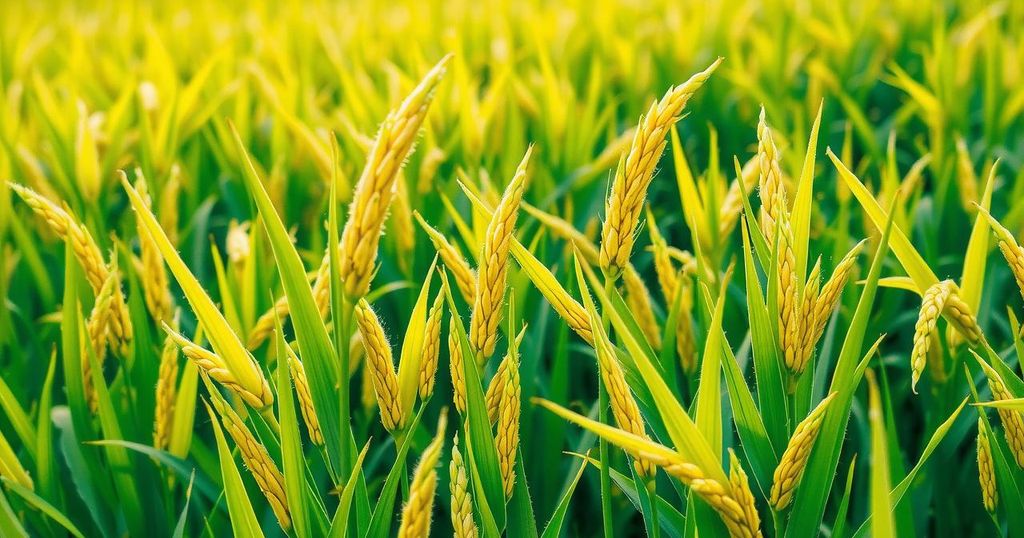In 2024, Mozambique saw record rice imports totaling $441 million, a 38.8% increase from the previous year. This rise is attributed to decreased local production due to climatic challenges. The agricultural sector’s struggles raise concerns for food security as the country leans heavily on imports to meet basic food needs. Strategic government investment is critical for improving local production and reducing dependency on foreign markets.
In 2024, Mozambique reported record rice imports amounting to $441 million, marking a 38.8% increase compared to $317.7 million in 2023. This surge reflects the country’s growing dependence on foreign sources to meet basic food needs, driven by increased domestic consumption and a decline in local rice production due to structural and climatic challenges.
Data from Mozambique’s National Institute of Statistics (INE) indicates a 34% drop in rice production in 2023, resulting in only 161,800 tons. Adverse weather, including floods and droughts, alongside insufficient investments in irrigation and agricultural support, has contributed to this decline. The reliance on imports not only exacerbates food insecurity but also leaves the nation vulnerable to volatile international food prices.
In addition to rice, the production of maize fell by 11% to 2.12 million tonnes in 2023, though this decline is less alarming given the 30% rise in 2022 compared to 2021. Other essential crops, such as sorghum and millet, also saw reductions, with sorghum down 15% to 139,553 tonnes and millet down 32% to 17,098 tonnes.
These agricultural shortfalls, coupled with soaring imports, underscore serious concerns about food security in a predominantly agricultural nation where the sector contributes over 20% to GDP. Despite increasing climatic adversities, there is potential for improvement in agricultural output through government investment in infrastructure and climate resilience.
A February report from the Inclusive Growth in Mozambique development programme highlights the necessity for strategic government investments to enhance agricultural productivity. Long-term investment in these crucial areas could mitigate dependence on imports and boost food security, employment, and income for millions, thus strengthening the economy as a whole.
Mozambique’s record rice imports in 2024 underscore an urgent need for governmental investment in the agricultural sector to address production shortfalls caused by climatic changes and structural issues. By enhancing agricultural resilience and output, the country can decrease its reliance on foreign imports, thereby promoting food security and economic growth.
Original Source: macaonews.org






